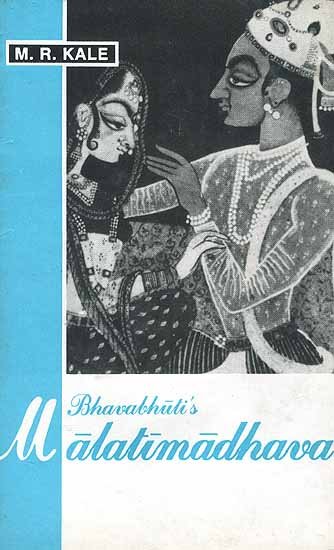Malatimadhava (study)
by Jintu Moni Dutta | 2017 | 52,468 words | ISBN-10: 8120813057 | ISBN-13: 9788120813052
This page relates ‘Popular beliefs in the Malatimadhava and 8th-century India’ from the English study on the Malatimadhava of Bhavabhuti:—A Prakarana type of Drama in ten acts revolving around the love-story of Malati (from Padmāvatī) and Madhava (from Vidarbha). This study discusses the history of its author and the literary, social, religious, historical and cultural aspects of the Malatimadhava.
Part 2 - Popular beliefs in the Mālatīmādhava and 8th-century India
From the very ancient time the common faiths and beliefs have made an immense contribution towards the life of the Indians. Beliefs are firmly held opinion. In the Mālatīmādhava, Bhavabhūti has depicted different kinds of popular beliefs and their practices of his time.
In the Mālatīmādhava, there was a belief among the people that if girls go to the temple of Śaṅkara, on the 14th day of the dark half of the month and offer flowers with their own hands to the God, then they can achieve good fortune. In the 3rd act it was found that Mālatī went to the temple of Śaṅkara with flowers to worship God for good fortune[1] where Madayantikā also accompanied her.[2]
Similarly, there was another belief that during marriage, the bride was to go to the temple before the coming of bridegroom’s party in order to avert the obstacle from auspicious marriage ceremony. In the 6th act it was found that Mālatī went to the temple of city deity in order that the auspicious ceremony would pass off without any obstacle.[3] At the time of Bhavabhūti, people also believed on divine fate as they had regarded that divine fate dispensed welfare as well as evil for creatures. It was known from the speech of Mādhava that his heart became attracted to Mālatī without having regard to the cause. He regarded that he should be subjected to the great calamity. As it is the almighty goddess Destiny that dispenses good or evil to creatures.[4] Thus, this description indicates the people’s belief in the workings of destiny.
The People of 8th century A.D. used to believe on blessings of elders so that they would get their expected things in their next life. In the 10th act when Mālatī was taken by Kapālakuṇḍalā to impose upon her an agonising death then Lavaṅgikā had saught blessings from Kāmandakī by which she would see her dear friend Mālatī at any rate in her next life. Simultaneously, When Lavaṅgikā wanted to meet her friend in her next life then Kāmandakī said to Lavaṅgikā that there would be no union after death owing to the diversity of actions.[5] Thus, during Bhavabhūti’s time People believed that the merit and demerit of life depended on the activities of previous life.They had believed on rebirth.
Again there was a great belief during 8th century A.D. on the power of certain signs which had effect in the future time. In the 1st act Kāmandakī said that her left eye was throbbing and it indicated a pleasurable issue for her.[6] Throbbing of the left eye in case of a female was considered as auspicious sign whereas in the case of males the throbbing of the right eye was a good sign.
Thus, many popular beliefs such as worship of deity for the sake of good fortune during marriage ceremony, belief on rebirth, belief on blessings and belief on signs etc. formed a substantial role in the minds of the mass during 8th century A.D.
Footnotes and references:
[1]:
[3]:
yābacca saṃbandhinī na parāpatanti tāvadvatsayā mālatyā nagaradevatāgṛhamvighnamaṅgalāyagantavyamityatpādiśantibhagavatīnirdeśa vartinoa mātyadārāḥ /
Ibid.,VI.p.120
[4]:
[5]:
tathā me bhagavatyāśiṣaṃ karotu yena janmāntareapi tāvapriyasakhīṃ prekṣiṣye /
Ibid., X.p.207
[6]:
vivṛṣvateva kalyāṇamantarajñena cakṣuṣā sphuratā vāmakenāpi dākṣiṇyamavalambyate //
Ibid., I.8
